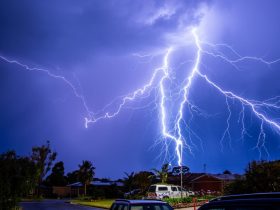Gas water heaters are a popular choice for many households, providing an efficient and reliable source of hot water. However, there is often confusion about whether these appliances use electricity. In this comprehensive guide, we will explore the inner workings of gas water heater, addressing common misconceptions, energy efficiency considerations, safety concerns, and more.
Do Gas Water Heaters Use Electricity? Unveiling the Truth
A. Brief overview of gas water heater
Gas water heaters are essential appliances that heat water for various domestic purposes. They operate on the principle of burning natural gas to generate heat, which is then transferred to the water.
B. Common misconceptions about gas water heaters
One prevalent misconception is that gas water heaters operate entirely without electricity. This guide aims to debunk such myths and provide clarity on the role of electricity in these systems.
How Gas Water Heater Work
A. Explanation of the combustion process
Gas water heaters rely on combustion to produce heat. Natural gas is ignited in a burner, heating a metal element called a heat exchanger.
B. Heat transfer in gas water heater
The heat exchanger transfers the generated heat to the water, raising its temperature and supplying hot water to faucets and appliances.
Electricity Usage in Gas Water Heaters
A. Ignition systems
While the heating process is primarily gas-driven, modern gas water heaters utilize electronic ignition systems that require electricity.
B. Electrical components in modern gas water heaters
In addition to ignition, electric components control temperature, monitor safety features, and facilitate the overall operation of the appliance.
Energy Efficiency Comparison
A. Gas vs. electric water heaters
Gas water heater are generally more energy-efficient than their electric counterparts, leading to cost savings in the long run.
B. Factors affecting energy efficiency
Factors such as insulation, thermostat settings, and regular maintenance contribute to the overall energy efficiency of gas water heaters.
Pros and Cons of Gas Water Heaters
A. Advantages
Gas water heaters provide faster heating, cost savings, and reliability, making them a preferred choice for many households.
B. Disadvantages
However, they come with challenges such as installation costs, safety concerns, and the need for proper ventilation.

VI. Maintenance Tips
A. Regular checks for gas leaks
Periodic inspections for gas leaks are crucial to ensure the safety of the household and efficient operation of the water heater.
B. Cleaning and maintenance of components
Routine cleaning and maintenance tasks help extend the lifespan of gas water heaters and prevent malfunctions.
Safety Concerns
A. Importance of proper installation
Professional installation is vital to guarantee the correct setup of gas water heaters, minimizing risks of leaks and other safety hazards.
B. Carbon monoxide risks and prevention
Gas water heaters produce carbon monoxide, emphasizing the necessity of proper ventilation and the installation of carbon monoxide detectors.
Cost Considerations
A. Initial costs
While gas water heaters may have higher upfront costs, their lower operational expenses make them cost-effective over time.
B. Long-term operational costs
Analyzing the long-term operational costs helps homeowners make informed decisions based on their budget and energy preferences.
Environmental Impact
A. Carbon footprint of gas water heaters
Gas water heaters contribute to carbon emissions, prompting a growing interest in eco-friendly alternatives and sustainable practices.
B. Sustainable alternatives
Exploration of environmentally friendly water heating options, such as solar-powered or hybrid systems, for those seeking a reduced carbon footprint.
Tips for Choosing the Right Gas Water Heater
A. Size considerations
Selecting the appropriate size ensures optimal performance and energy efficiency tailored to the household’s hot water demands.
B. Energy efficiency ratings
Understanding energy efficiency labels aids consumers in choosing models that align with their environmental concerns and budget constraints.
Common Myths Debunked
A. Misconception 1: Gas water heaters don’t use electricity
Dispelling the myth that gas water heaters are entirely devoid of electricity by highlighting the role of electronic components in their operation.
B. Clarification on electrical components
Detailed explanation of the various electrical elements involved, emphasizing the integration of technology for improved functionality.
Real-life Scenarios
A. User experiences with gas water heaters
Sharing real-life anecdotes from homeowners using gas water heaters, addressing challenges faced and how they were overcome.
B. Challenges and solutions
Discussion of common issues encountered with gas water heaters and practical solutions for troubleshooting.
Future Trends in Water Heating
A. Technological advancements
An exploration of emerging technologies in water heating, offering a glimpse into the future of more efficient and sustainable options.
B. Sustainable innovations
Highlighting innovations that prioritize sustainability, with a focus on reducing energy consumption and environmental impact.
Conclusion
A. Recap of key points
Summarizing the crucial information discussed, reinforcing the importance of informed decision-making when choosing a water heating system.
B. Encouragement for informed decision-making
Encouraging readers to weigh the pros and cons, consider their unique needs, and make an informed decision based on the insights provided.
Frequently Asked Questions (FAQs)
A. Can gas water heater operate without electricity?
Yes, while the heating process is gas-driven, electronic components require electricity for ignition and control.
B. How do gas water heater compare to electric ones in terms of cost?
Gas water heaters may have higher upfront costs but generally result in lower long-term operational expenses, making them cost-effective.
C. What safety measures should be taken with gas water heaters?
Professional installation, regular maintenance, and proper ventilation are essential for safe operation and preventing gas leaks or carbon monoxide buildup.
D. Are there any government incentives for choosing energy-efficient water heaters?
Government incentives and rebates are available for energy-efficient appliances, including gas water heater. Check local programs for details.
E. Can I install a gas water heater myself, or should I hire a professional?
It is recommended to hire a professional for installation to ensure safety, compliance with regulations, and proper functioning of the water heater.







Leave a Reply